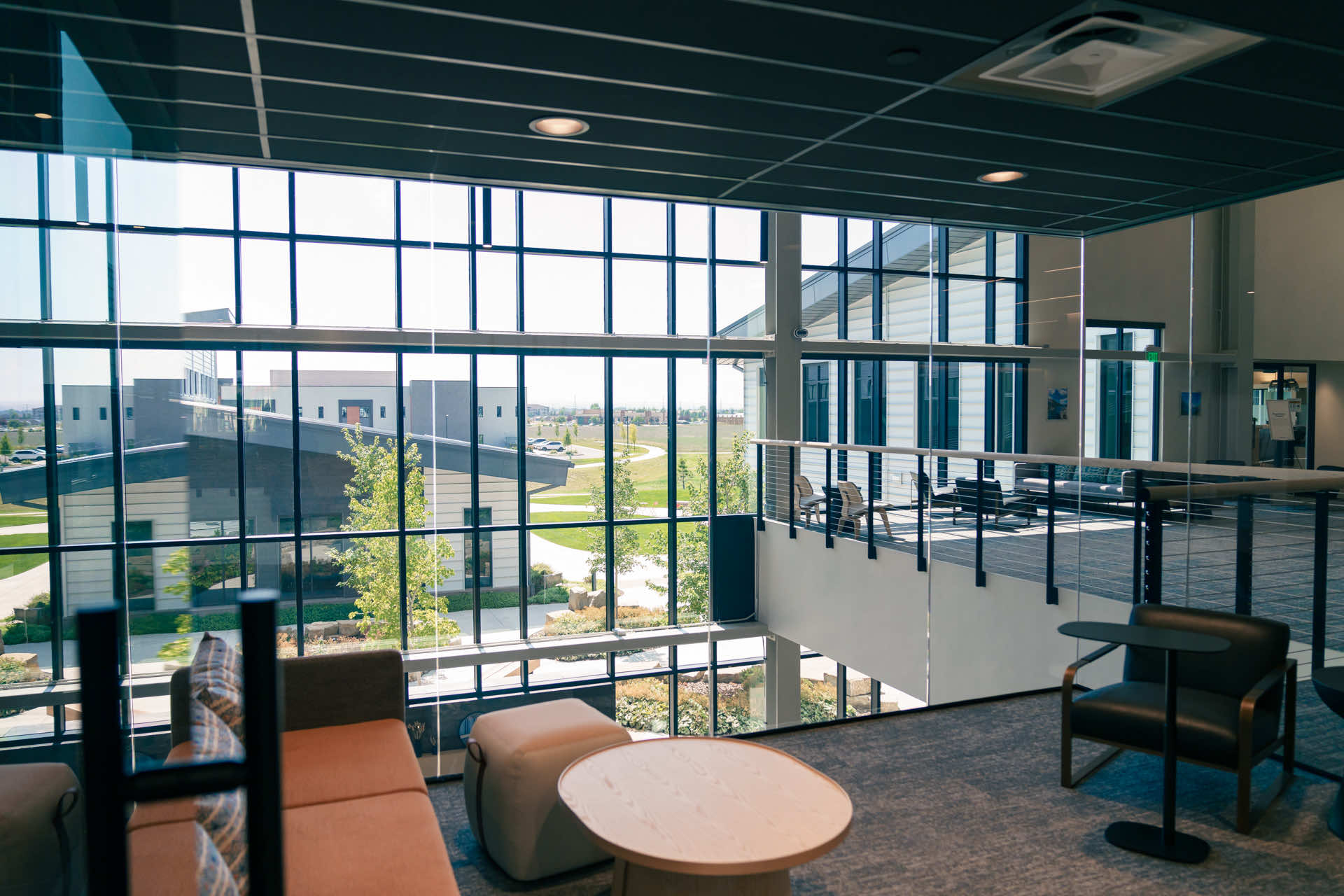The Office of Simulation in Medicine and Surgery has the distinction of being recognized as a Comprehensive Accredited Education Institute (AEI) by the American College of Surgeons, and is the first osteopathic medical school to receive this prestigious accreditation. This unique recognition is maintained by our AEI Simulation Oversight Committee which is dedicated to reviewing and improving all simulation events that are conducted at our center. To be a recognized AEI institution, RVU must offer high quality educational simulation that feature multiple different learning modalities from encounters with live actors and manikins to navigating a virtual environment to diagnosis and treat patients. Our certification must be maintained on a yearly basis by providing annual progress reports on our ever-developing curriculum and every 5 years undergo an in-person evaluation on campus. Accreditation allows RVU to further its goal of providing practice patient-centered medicine using innovative teaching methods, scholarly activity and research, while developing excellent undergraduate and graduate medical education opportunities. For further information please contact the AEI at 633 N. Saint Clair Street, Chicago, IL 60611; or (312) 202-5000.
Office of Simulation in Medicine and Surgery (SIMS)
Promoting hands-on learning.
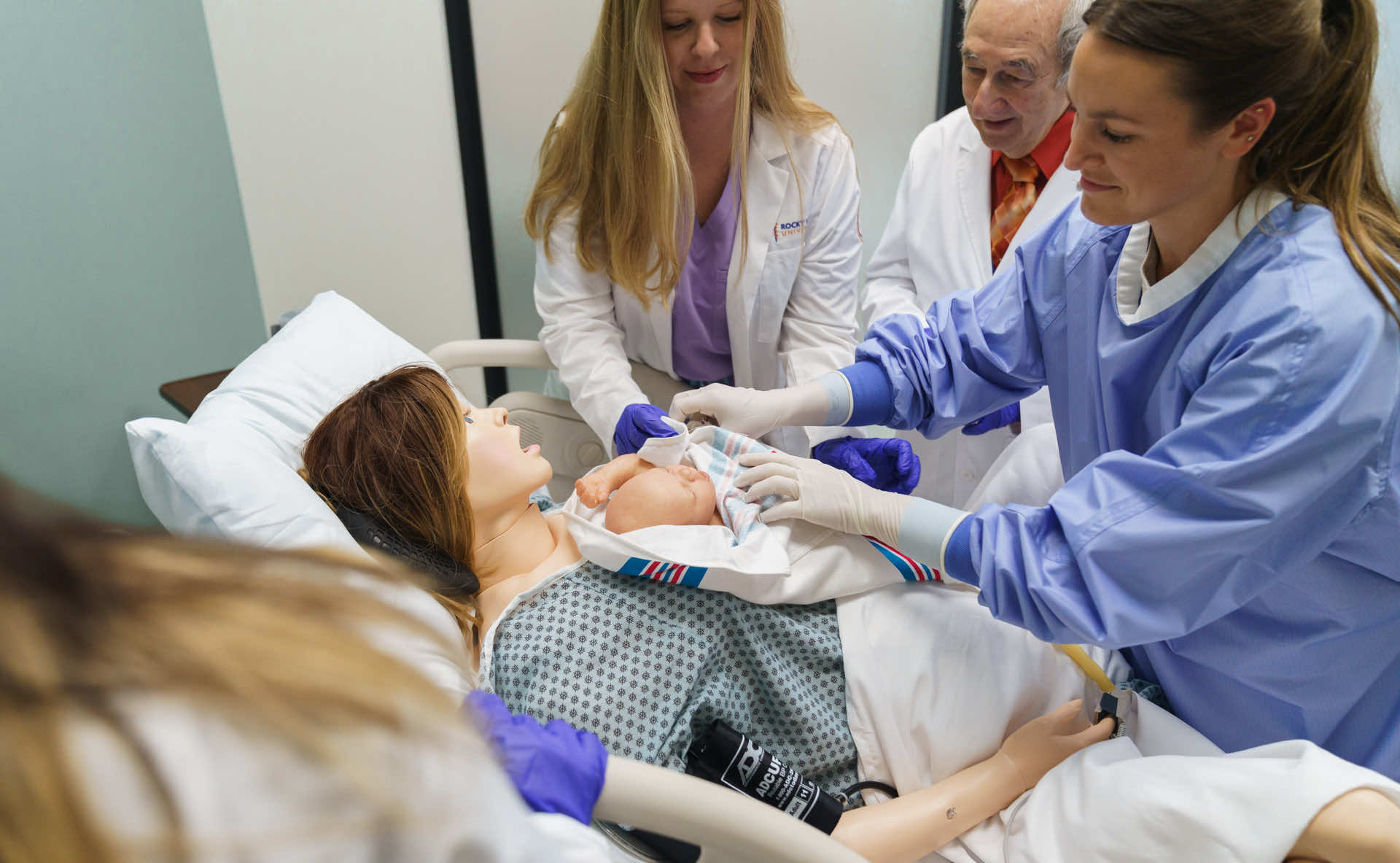
About SIMS
The Office of Simulation in Medicine and Surgery (SIMS) became a university-wide office in 2019, renovating and re-opening the Colorado (CO) RVU Healthcare Simulation Center in the Fall of 2020. Over 16,000 square feet of space in Colorado campus and over 10,000 square feet in Utah (UT) campus is dedicated to hands-on and tele-simulation learning opportunities for all members of the healthcare team.
Numerous simulation events and modalities are being continually updated and incorporated into intra- and extra-curricula of all programs at RVU at both campuses (CO and UT), including Master of Science in Biomedical Sciences Program, Physician Assistant Program, tracks and special programs, student clubs and organizations, simulated mass-casualty incidents, and community outreach events.
RVUCOM Accreditation
Faculty/Staff

Martin Alswang, MD
Pediatrics Clerkship Director, Assistant Professor, SIMS
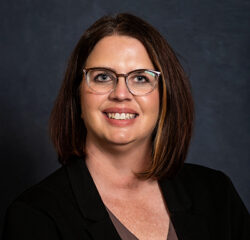
Becky Anglin, DNP, RN
Director of Simulation
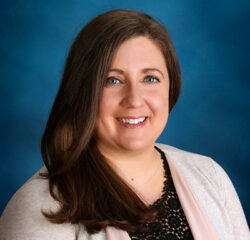
Sarah Boulos, DO
Assistant Professor of SIMS, Ultrasound Instructor
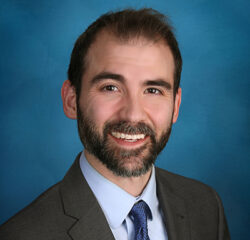
Sean Buchanon, MA, CHSE
Program Coordinator
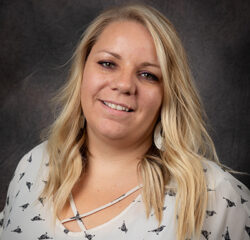
Chasity Caruso, CHSE
Associate Director of Clinical Assessment & Simulation
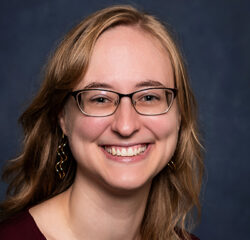
Synneva Collett
Administrative Assistant
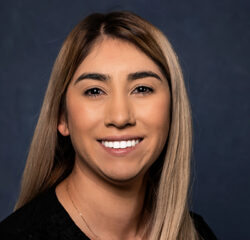
Daisy Collins
Simulation Technician Supervisor
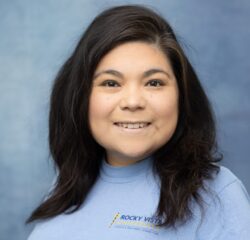
Valerie Escatel
Administrative Assistant
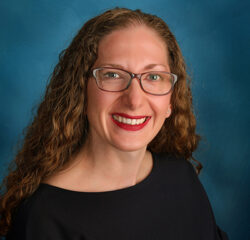
Jennifer Gaide, DO, FACOOG
Assistant Professor of SIMS and Ultrasound Instructor
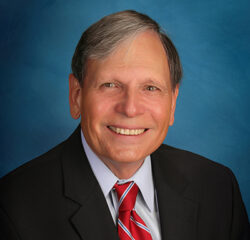
Robert Henderson II, MD, DO
Assistant Professor
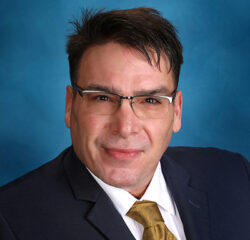
Thomas E. Jackson III
Healthcare Simulation Technology Specialist
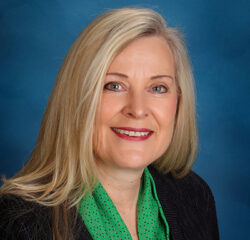
Darlene McCampbel
Lead Coordinator
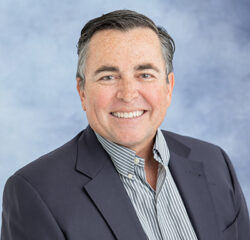
Terry Melendez, MD
Assistant Professor

Louis Musso, DO
Assistant Professor of Surgery
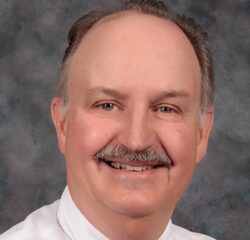
Andrew Nigh, MD, FACS
Assistant Professor of Specialty Medicine, Co-Director of Rural and Wilderness Track
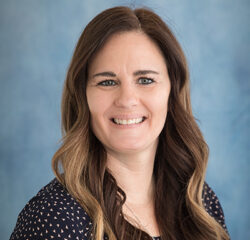
Claire Ruffell
Healthcare Simulation Technician

Loretta Sanchez
Simulation Coordinator
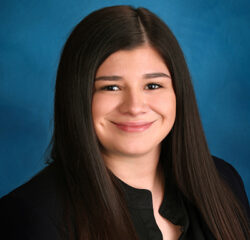
Celeste Sanchez
Administrative Assistant
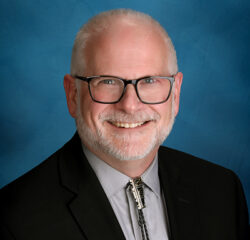
Bradley Simon, MD
Acting Director of the Office of SIMS, Assistant Professor of Emergency Medicine
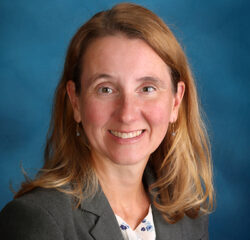
Kathryn Vidlock, MD
Associate Professor of Family Medicine & Ultrasound, Point of Care Ultrasound
SIMS Oversight Committee

Martin Alswang, MD
Pediatrics Clerkship Director, Assistant Professor, SIMS

Becky Anglin, DNP, RN
Director of Simulation

Sarah Boulos, DO
Assistant Professor of SIMS, Ultrasound Instructor

Sean Buchanon, MA, CHSE
Program Coordinator

Chasity Caruso, CHSE
Associate Director of Clinical Assessment & Simulation

Synneva Collett
Administrative Assistant

Daisy Collins
Simulation Technician Supervisor

Valerie Escatel
Administrative Assistant

Jennifer Gaide, DO, FACOOG
Assistant Professor of SIMS and Ultrasound Instructor

Robert Henderson II, MD, DO
Assistant Professor

Thomas E. Jackson III
Healthcare Simulation Technology Specialist

Darlene McCampbel
Lead Coordinator

Terry Melendez, MD
Assistant Professor

Louis Musso, DO
Assistant Professor of Surgery

Andrew Nigh, MD, FACS
Assistant Professor of Specialty Medicine, Co-Director of Rural and Wilderness Track

Claire Ruffell
Healthcare Simulation Technician

Loretta Sanchez
Simulation Coordinator

Celeste Sanchez
Administrative Assistant

Bradley Simon, MD
Acting Director of the Office of SIMS, Assistant Professor of Emergency Medicine

Kathryn Vidlock, MD
Associate Professor of Family Medicine & Ultrasound, Point of Care Ultrasound
RVUCOM Students/Clubs
SIM Scholars Club
Open to all RVU programs.
Students in this club participate in extracurricular simulation workshops using high fidelity electronic manikins, virtual reality, task trainers, and ultrasound machines alongside faculty guest speakers.
SIM Scholar Interest Group (SSIG)
One of the largest Student Interest Groups/Clubs on both campuses is the SIMS Scholar group. These students receive extra training in all modalities of simulation and assist with running Simulated Events. They compete in various simulation competitions, and create several simulated labs each semester. Some SIMS Scholars become Predoctoral Simulation Fellows.
2020 SSIG Leadership Team (Colorado)
- President: Brian Johnson
- Treasurer: Garrett Florey
- Education Coordinators (modality specialty):
- Dellvin Nguonly (task trainers)
- Andre Hernandez (virtual reality)
- Shannon Sturgeon (high-fidelity)
- Mac Iliff (floater)
Please contact Brian Johnson to get involved with SSIG!
Simulation Fellows
Pre-Doctoral Simulation Fellowship
The RVU Pre-Doctoral Simulation Fellowship is currently designed for selected osteopathic medical students who have chosen to spend a 5th year at RVU to acquire competence in all aspects of simulation medical education. Unlike the other two available pre-doctoral fellowships, the simulation fellowship begins in the student’s 4th year and continues into a 5th year. The program provides a substantial overview of the many aspects of simulation currently relevant in medical education.
The Pre-Doctoral Simulation Fellow provides educational and technical support to RVU students enrolled in the College of Osteopathic Medicine (in Colorado and Utah), the Master of Biomedical Science (MSBS) program (in Colorado and Utah) and the Master of Physician Assistant (PA) Studies (in Colorado) program, to the extent possible. This syllabus outlines the dimensions of the educational experience at RVU for the Pre-Doctoral Simulation Fellow. Each Fellow will alternately rotate between the Fellowship Program curriculum and the Clinical Education curriculum every 6–8 weeks resulting in an approximate six-month involvement in each in Year IV and Year V.
The objectives of this course are to develop the Fellow’s medical knowledge, teaching and academic skills, research skills and to contribute to the general student education at Rocky Vista University. Further, the Course aims to prepare the prepare the Fellow to be fully trained to contribute to medical simulation education within their respective residency programs and future clinical practice. As such, the Fellow will enhance their value as a residency applicant since such knowledge acquisition is not currently available to other students in standard medical school curricula.
Two students will be selected yearly for this program on each campus site. The pool of applicants who may be considered for selection are those osteopathic medical students in the third year that desire to stay at RVU for a 5th year with a history of interest in simulation.
4th Year Surgical Skills Week Mentors
Open to COM students
Students interested in surgery may register for this elective and will be involved in mentoring 3rd year students during their surgical skills week course. Responsibilities may include instrument identification, one-on-one patient role playing, overseeing suturing and knot tying skills, and giving feedback on student presentations.
RVUCOM Events and Courses
Physician Assistant (PA) Program Events
Info Coming Soon…
Primary Care Medicine (PCM) Events
Info Coming Soon…
Master of Science in Biomedical Sciences (MSBS) Program Events
Info Coming Soon…
Mass Casualty Incident (MCI) Events
Surgery Week
Videos Coming Soon
- Two handed ties, using either hand
- Instrument tie
Obstetrics Gynecology and Pediatrics (OGP) Events
Info Coming Soon…
Military Track Events
Info Coming Soon…
Foundation Clinical Medicine (FCM) Events
Info Coming Soon…
RVUCOM Media
RVU Simulation featured on the RVU Blog
Building Knowledge Through SimsLink (05/04/20) Rural and Wilderness Medicine Students Practice Orienteering (01/09/20) Simulation Competition Tests Students on Emergency Medicine Skills (12/13/19) Celebrating Simulation During Healthcare Simulation Week (09/25/19) Gaining Medical Skills Through Simulation (09/18/19) Military Students Participate in Annual Cut Suit Week (07/09/19) The Importance of Healthcare Simulation (10/03/18) RVUCOM-SU Holds Multi-Agency Active Shooter Simulation (10/03/18)RVU Simulation in the News
South Metro first responders train for active shooter situation (The Denver Channel) (11/02/18) “This is necessary now”: First responders conduct mass-shooting drills at Denver-area churches (Denver Post) (11/03/18) RVUCOM-SU Active Shooter Training Video (07/12/18) Multi-Agency Active Shooter Simulation Held at Rocky Vista University (07/10/18) 25 Medical Students Come to San Diego for Real-Life Training (KPBS Channel) (05/06/15) Ready for the worst in the wild (Parker Chronicle) (06/22/16) Hyper-realistic training immerses RVUCOM students in surgery scenarios (The DO Magazine) (12/29/15) An attempt at zero G surgery (Parker Chronicle) (07/15/15) RVU students test medical skills in the wild. (Parker Chronicle) (11/20/16) Rocky Vista University in Parker finds new ways to train doctors (Denver Post) (10/21/14)RVUCOM Services
- Medical students and Physician Assistant students (CO only) gain experience using task trainers for ultrasonography, vascular access, sterile surgical technique, suturing and operating room etiquette.
- First Responders practice resuscitation techniques, intubation, hemostasis and advanced skills such as cricothyrotomy.
- General Surgery Residents hone their skills at emergency airways and trauma laparotomies, while Family Medicine Residents improve their procedural and wound care capabilities.
- Practicing physicians can refine their minimally invasive Laparoscopic and Robotic Surgery techniques. 3-D Virtual Reality modules and hi-fidelity electronic manikins help train critical thinking skills using simulated patients.
Cut Suit
Info Coming Soon…
Virtual Reality
VR in the Simulation Center
At RVU we have integrated Virtual Reality (VR) into the curriculum. VR modalities include Oxford Medical Simulation and Perspectus for 3-D anatomy and 3-D renderings of CT Scans and other imaging. The VR modalities are used in a variety of courses including our Surgery Skills Course, OB/Gyn/Peds Course, and Fundamentals of Clinical Medicine Course. We also have a yearly VR Simulation Competition where we have teams of students interact together in the same VR environment.
Oxford Medical Simulation was developed by a UK based physician and is a case based VR program where students can opt to use 3-D VR goggles or run the program on a laptop or desktop in 2-D mode. The scenarios are clinic or ED based and can be run individually or in multiplayer mode. This program is used to help students prepare for clinical rotations, practice doing History and Physicals and develop their critical thinking skills.
Perspectus is a VR program developed right here in Colorado at CSU. This VR program is used for 3-D anatomic models or 3-D renderings of CT scans or other medical imaging and is an adjunct to the human anatomy cadaver laboratory.
Ultrasound Program
Task Trainers
Info Coming Soon…
High Fidelity Simulators
Info Coming Soon…
Manikins
Info Coming Soon…
RVUCOM Equipment
Manikins
Info Coming Soon…
Task Trainers
Info Coming Soon…
Virtual Reality
VR in the Simulation Center
At RVU we have integrated Virtual Reality (VR) into the curriculum. VR modalities include Oxford Medical Simulation and Perspectus for 3-D anatomy and 3-D renderings of CT Scans and other imaging. The VR modalities are used in a variety of courses including our Surgery Skills Course, OB/Gyn/Peds Course, and Fundamentals of Clinical Medicine Course. We also have a yearly VR Simulation Competition where we have teams of students interact together in the same VR environment.
Oxford Medical Simulation was developed by a UK based physician and is a case based VR program where students can opt to use 3-D VR goggles or run the program on a laptop or desktop in 2-D mode. The scenarios are clinic or ED based and can be run individually or in multiplayer mode. This program is used to help students prepare for clinical rotations, practice doing History and Physicals and develop their critical thinking skills.
Perspectus is a VR program developed right here in Colorado at CSU. This VR program is used for 3-D anatomic models or 3-D renderings of CT scans or other medical imaging and is an adjunct to the human anatomy cadaver laboratory.
Cut Suit
Info Coming Soon…
Ultrasound Program
Equipment Reservations
Info Coming Soon…
Room Reservations
Info Coming Soon…
Simulation Facilities
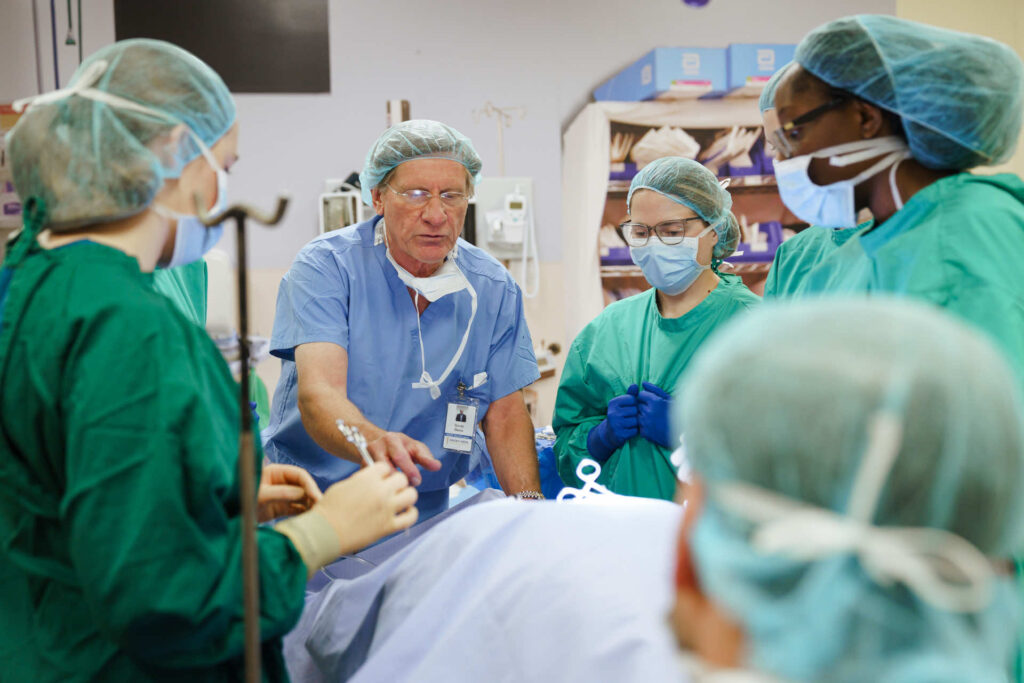
About RVUCOM
The Office of Simulation in Medicine in Surgery (SIMS) was established in 2019 to promote more hands on learning experiences for RVU students through healthcare simulations. The SIM Center recently went under construction, Fall 2020 was a grand re-opening to our physical locations on each campus under a new name, the RVU Healthcare Simulation Center.
Modalities
- Standardized Patients (in-person and telehealth visits)
- Virtual Reality Patients (on students’ personal computers or on the university’s VR headsets)
- Task Trainers (for things like intubation, IVs, injections, cricothyrotomy, auscultation)
- Electronic Manikins (for team-based trainings, including critical care and birthing simulations)
- Ultrasound Machines
Services
- Curriculum Integration
- SIM based courses such as the OMS III Surgical Skills Week course
- Resident Assessment
- Student Research
- Special Events
- SIM Scholars Interest Group
Colorado Campus Features
In terms of our remodel and features, most updates were to the Colorado campus to more closely match the Utah features that have worked very well:
- Ambulance Ramp and Entrance – New in CO, complete with backboards and a lounge for EMTs and other first responders during simulated events.
- Simulated Trauma Bays – New in CO, complete with wall murals, disposable medical kits, whiteboards, PPE, code carts. Trauma Bays can be split back into individual exam rooms with a blue, sound proof collapsible divider.
- Simulated Operating Rooms – New in CO, complete with wall murals, OR lights, disposable medical kits, mayo stands, whiteboards, PPE. OR Rooms can be split back into individual exam rooms with a blue, sound proof collapsible divider.
- Updated Inventory System
- Simulation Prep Room
- Equipment Upgrades – New equipment, including virtual reality on both campuses, portable butterfly ultrasound machines on both campuses, a SimMom OBGYN electronic manikin in Colorado, various new task trainers
Utah Campus Features
- OR Sim Lab
- ER Sim lab with capabilities for up to 6 bays/beds
- Labor and Delivery Sim Lab, with room for both neonatal and pre/post-natal care.
- Ambulance Ramp and Entrance – Complete with backboards and a lounge for EMTs and other first responders during simulated events. Both SIM centers have a bay for ambulances to pull into for multi-agency training. They are working with local EMS/Fire to develop mass casualty training’s for IPE.
- Simulated Trauma Bays – Complete with wall murals, disposable medical kits, whiteboards, PPE, code carts. Trauma Bays can be split back into individual exam rooms with a blue, sound proof collapsible divider. New in Utah is the wall murals in their trauma bays.
- Simulated Operating Rooms – Complete with wall murals, OR lights, disposable medical kits, mayo stands, whiteboards, PPE. OR Rooms can be split back into individual exam rooms with a blue, sound proof collapsible divider. New in Utah is the wall murals in their ORs.
- Updated Inventory System
- Simulation Prep Room
- Equipment Upgrades – New equipment, including virtual reality, portable butterfly ultrasound machines on both campuses, a SimMom OBGYN electronic manikin.
Standardized Patient Encounters
Specially trained actors, Standardized Patients, accurately portray the role of a patient with a specific medical condition. They provide students with direct human interaction in a safe learning environment. Performing a competent physical exam, taking a thorough medical history, and building a rapport with patients are fundamental clinical skills that all graduates should possess. RVU’s Standardized Patient Program’s primary objective is to ensure that all graduates possess these essential skills. Feedback is given by faculty, staff, as well as the standardized Patient Educators, and is valued by students in their health care education.
Ultrasound Program
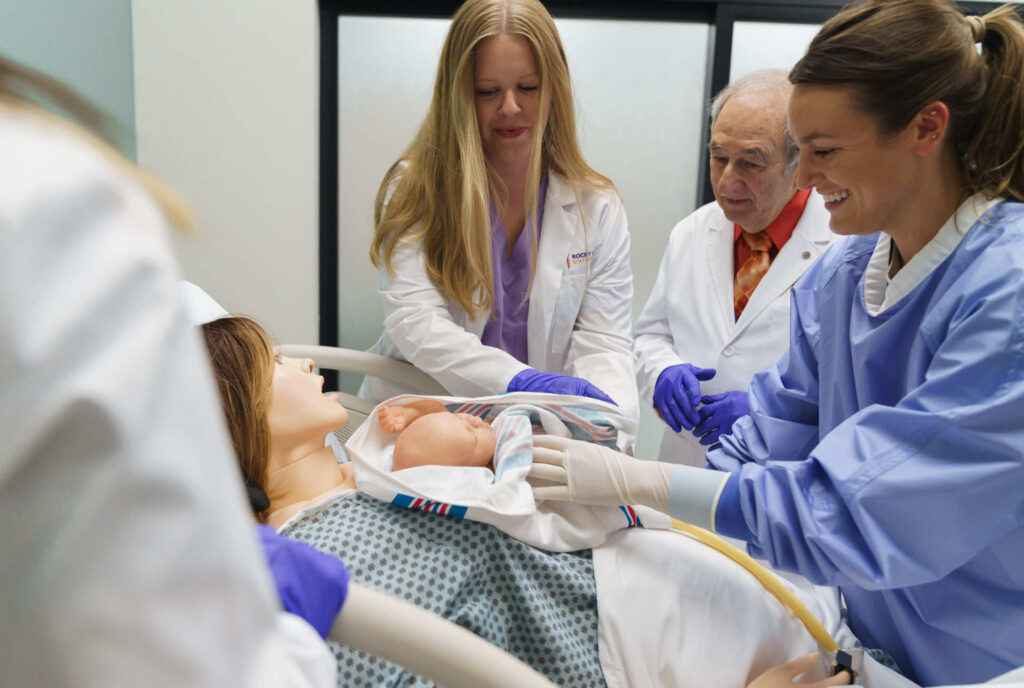
About MCOM
The Simulation in Medicine and Surgery (SIMS) Center is over 23,000 square feet of space dedicated to hands-on and tele-simulation learning opportunities for all members of the healthcare team.
Simulation events are incorporated into intra- and extra-curricula, including tracks and special programs, student clubs and organizations, simulated mass-casualty incidents, and community outreach events.
Modalities
- Standardized Patients (in-person and telehealth visits)
- Immersion rooms (allow students to immerse into the environment in which they will be practicing)
- Simulation Rooms (allow students to simulate medical experiences in a safe learning environment)
Features
- Task trainers for ultrasonography, vascular access, sterile surgical technique, IVs, injections, auscultation, suturing and operating room etiquette.
- Practice resuscitation techniques, intubation, hemostasis and advanced skills such as cricothyrotomy.
- Skill sets needed for general surgery to include emergency airways, trauma laparotomies, and procedural and wound care capabilities.
- Immersion rooms will allow students to be immersed into the environment in which they will be practicing whether that is a hospital, clinic, rural, outdoor, or urban setting. All can be created to allow students the ability to train in any environment.
- Life-like mannikins allow students to have the realism of caring for a patient in safe learning environments. Can be utilized for team-based trainings, including ER, ICU, medical-surgical, birthing and more.
- Virtual Reality modules and high-fidelity electronic manikins help train critical thinking skills using simulated patients.
Services
- Curriculum Integration
- Student Research
- Special Events
- SIM Scholar Elective
- Interprofessional Education Events
Specific Features
- Exam Rooms – 16 exam rooms that will be utilized for standardized patient events.
- ER Sim lab with capabilities for up to 8 bays/beds.
- Labor and Delivery Sim Lab
- Ambulance Ramp and Entrance – have a bay for ambulances to pull into for multi-agency training. MCOM will be working with local EMS/Fire to develop interprofessional education training events.
- Simulated Trauma Bays – Complete with tv’s for displaying images/vital signs and more, disposable medical kits, PPE, code carts. Trauma Bays can be split back into individual exam rooms with glass divider walls.
- Simulated Operating Rooms – Complete with OR lights, disposable medical kits, mayo stands, PPE. OR Rooms can be split back into individual exam rooms with glass dividing walls.
- Inventory System
- Simulation Prep Room
- Immersion Rooms – allow students to be immersed into the environment in which they will be practicing, whether in a hospital, clinic, rural, outdoor, or urban setting. All can be created to allow students to train in any environment.
- Learning Lab –filled with task trainers to allow students to gain additional practice on their own time.
- State of the Art Equipment – New equipment, including immersion rooms, virtual reality, portable butterfly ultrasound machines, SimMoms OBGYN electronic manikin, Lifecast mannikins, iSimulate, vimedix and many other task trainers.
Standardized Patient Encounters
Specially trained actors, Standardized Patients, accurately portray the role of a patient with a specific medical condition. They provide students with direct human interaction in a safe learning environment. Performing a competent physical exam, taking a thorough medical history, and building a rapport with patients are fundamental clinical skills that all graduates should possess. RVU’s Standardized Patient Program’s primary objective is to ensure that all graduates possess these essential skills. Feedback is given by faculty, staff, as well as the standardized Patient Educators, and is valued by students in their health care education.
Ultrasound Program
Additional Resources
At RVU we pride ourselves in placement. We are here for you as you start your journey into the medical profession with resources to help you at every turn.
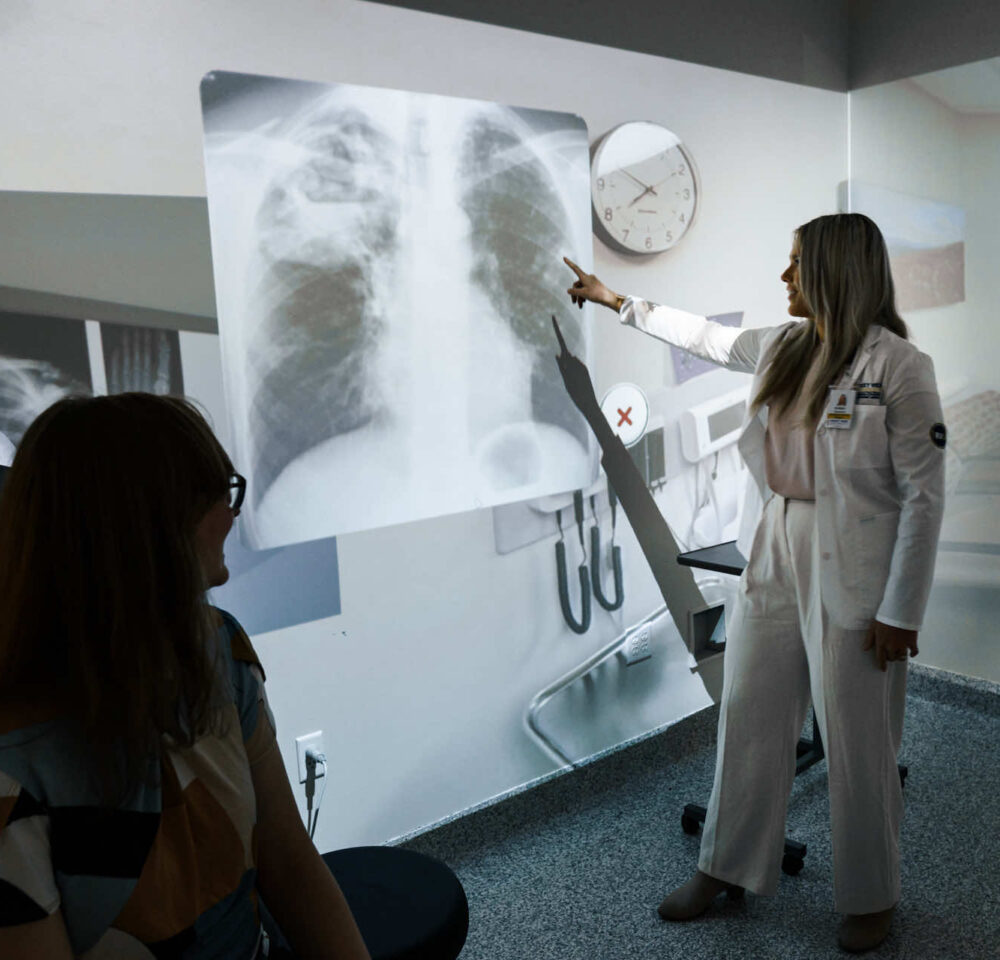
Tracks & Special Programs
Tracks & Special Programs
Rocky Vista University College of Osteopathic Medicine has developed several specialized educational tracks and programs to further develop the education of interested students. These range from 3.5-year-long tracks to single-semester elective courses.
Learn More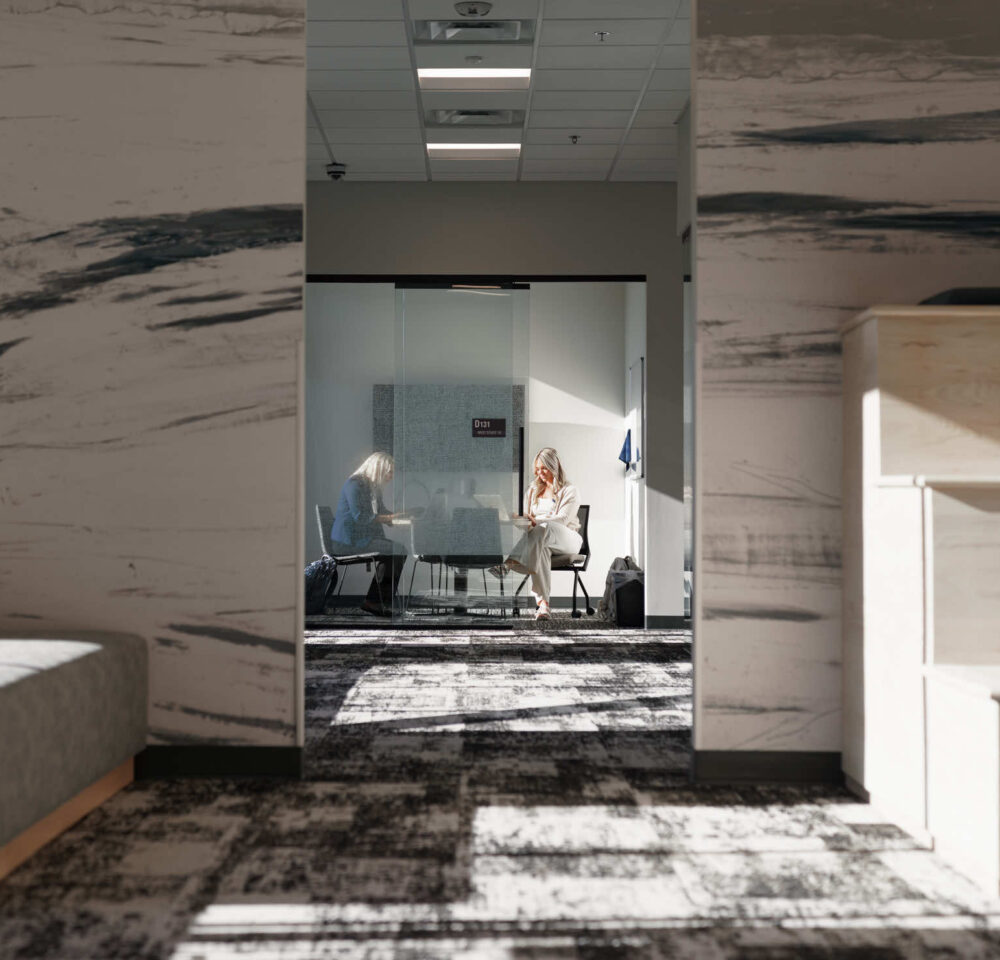
Office of Research & Scholarly Activity
Office of Research & Scholarly Activity
Student research/scholarly activity is a vital part of health provider education. Research enhances critical thinking skills and increases medical knowledge, as well as preparing students for graduate medical education. Therefore, all students are encouraged to participate in research activities while at RVU.
Learn More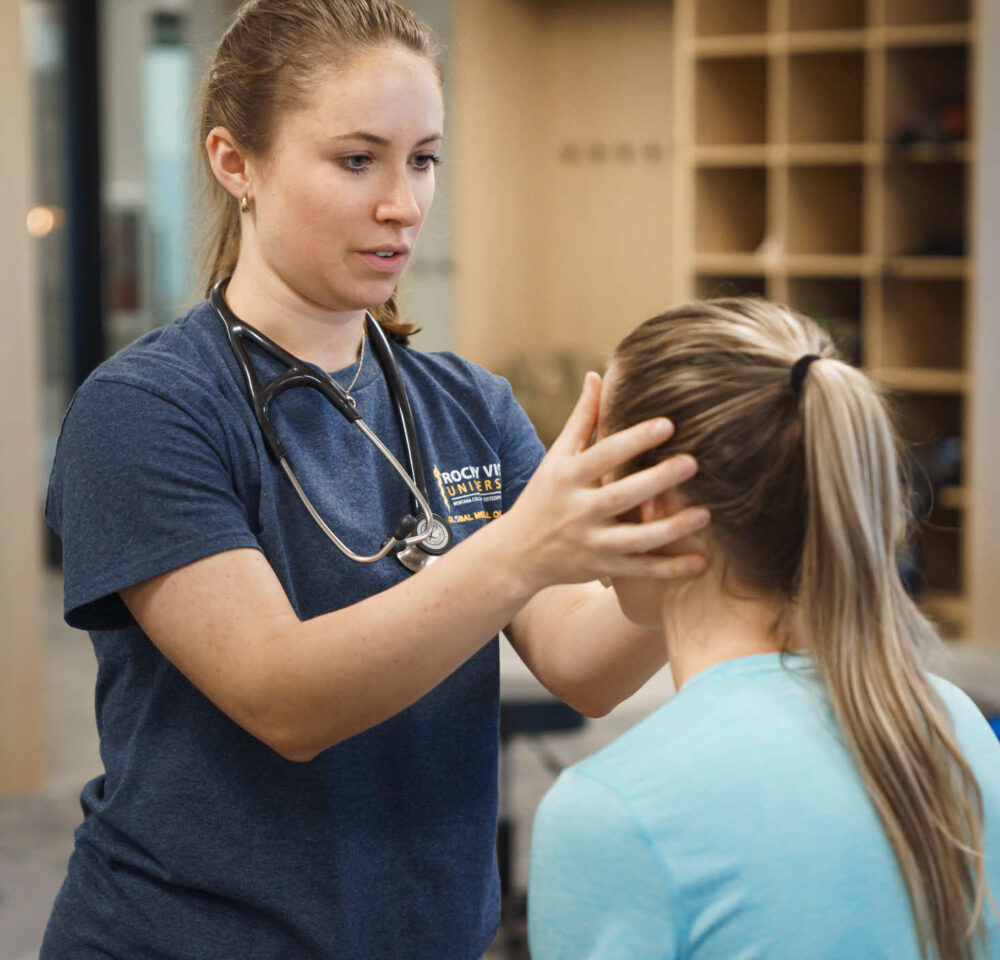
Clinical Education
Clinical Education
During their third and fourth years of medical school, students work on clinical clerkships, under the guidance of preceptors. RVU students have clerkships available to them through Colorado and the other Mountain West states.
Learn MoreContact the Office of Admissions
Colorado Campus
8401 S. Chambers Road
Englewood, CO 80112
303-373-2008
For faster response, please direct inquiries to: [email protected]
Utah Campus
255 E. Center Street
Ivins, UT 84738
435-233-9550
For faster response, please direct inquiries to: [email protected]
Montana Campus
4130 Rocky Vista Way
Billings, MT 59106
406-901-2701
For faster response, please direct inquiries to: [email protected]
